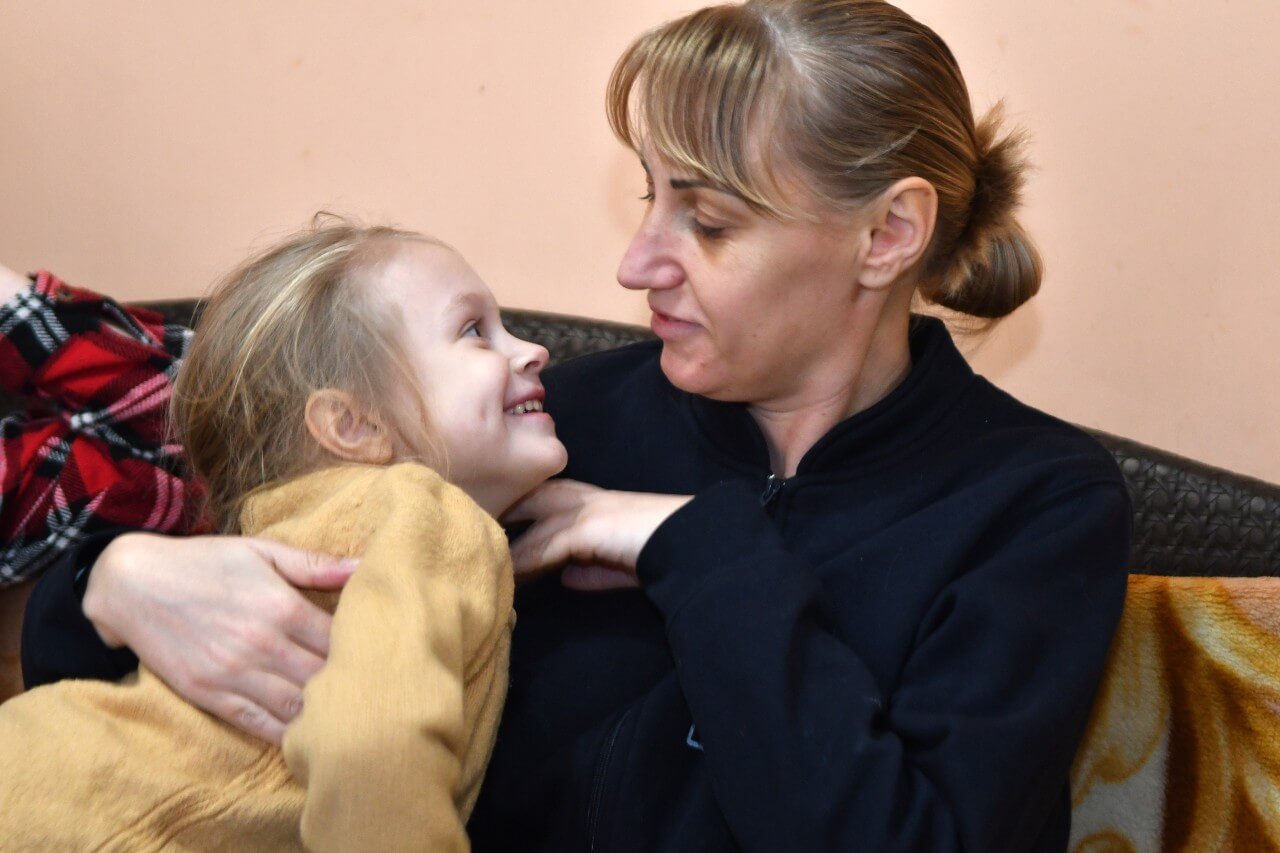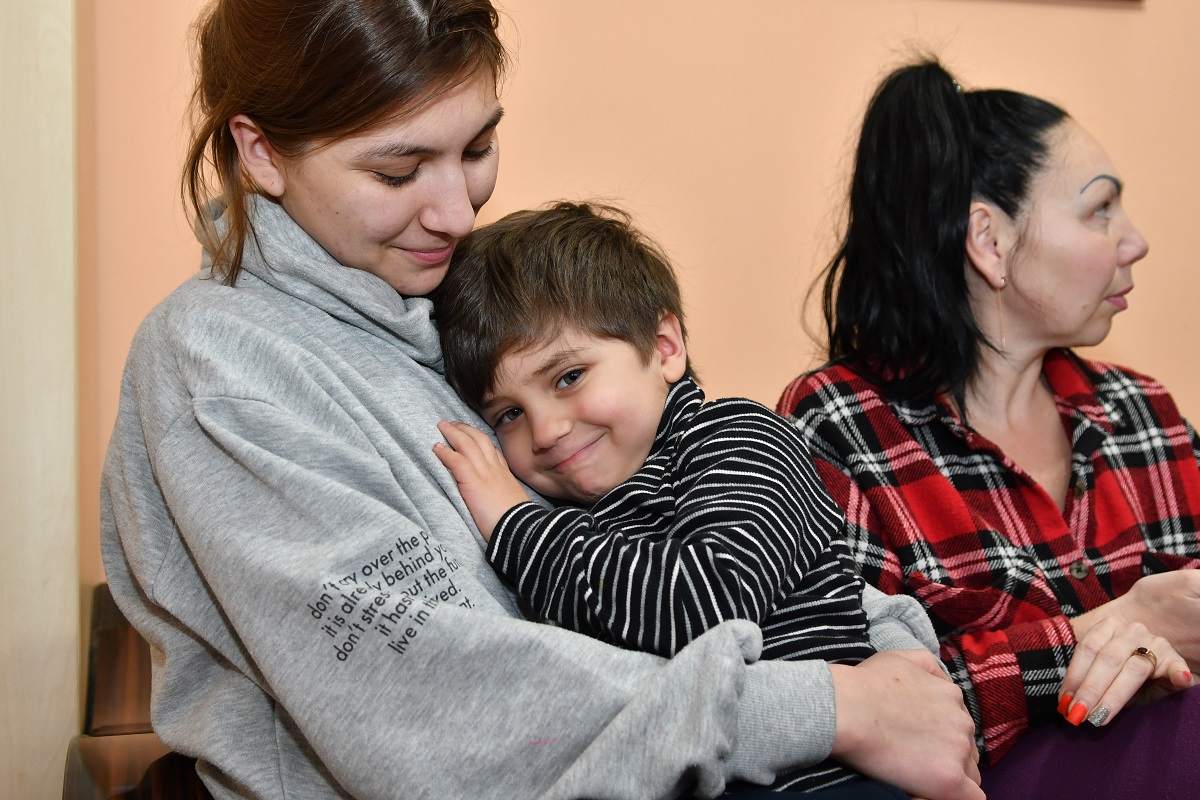Women refugees from Ukraine bear war trauma and pain of separation
Date:
On 24 February, Natalia, Irina and Cristina, three friends and mothers from Odessa, woke up to the sound of air raid sirens and explosions. Russia’s military offensive had begun.

"Stress, danger and traffic jams, especially near military units... It was awful to see bags full of sand at checkpoints, tanks. I don't even remember the whole way to Moldova because I was very panicked," says Cristina, 41, who left Ukraine with her 18 and 3.5-year-old daughters. "After crossing the border, volunteers helped us with food and transportation. We are very grateful to the Moldovans,” says Cristina.
Natalia just turned 40 in early March but it was no time to celebrate. In Odessa, she was working as an administrator in a private clinic. She loved her job and her patients. "I was just fine. Now, we begin to value this even more. It is very difficult to leave such a beautiful and rich city in Ukraine, to give up everything. I was born and raised in Odessa. I don't understand why my town was under attack. I miss my house, my husband, my mother. I just want this nightmare to be over so we can go home,” says Natalia.

After the military offensive began, 24-year-old Irina used her neighbour’s basement as a shelter with her 4 and 6-year-old sons. They had to run to the shelter every 30 minutes when they heard air raid sirens.
"In Odessa, it was relatively quiet, but it was still difficult. We could just talk to each other and hear explosions. We wrapped our children in blankets and panicked as we ran into basements. The night of 27 February, we decided to leave after the media wrote about military ships on the shores of Odessa,“ says irina.
They decided to leave Ukraine for the safety of their children. It was very difficult to explain to them why they needed to sleep in the basement and what caused the dreadful explosions that they were hearing for the first time in their lives.
Natalia left with her 17 and 4.5-year-old daughters. Her mother and husband stayed. Every day, she fears for their safety. “I want to be with my husband. We hugged when we said goodbye and I don't know if I'll ever see him again. It's very difficult,” says Natalia.
Irina's whole family remained in Odessa, including her brothers. "I keep in touch with them, we talk every day, but I worry when they don’t answer my phone and I fear for the worse,” says Irina.
They took very few things for their journey, only the most necessary items."We have very few clothes for children and for us. I came with my sneakers and it's snowing here," says Cristina.
Every morning begins with messages to loved ones, to find out where they are and if they are safe. The nights are restless, their sleep frequently interrupted to check the news.
"It is not normal to have this life, we are peaceful people. I've only heard of war from my grandparents. We live in the 21st century. We were developing, we were studying. And now we're just running away,” says Natalia.
On International Women’s Day, Natalia, Cristina and Irina wish for peace to arrive so that they can return to their home country. They know that nothing will be the same, but despite the hardships, they’re calling on all women affected by the war in Ukraine to be brave and keep resilient.
Since the military offensive began in Ukraine, more than 1,5 million people, a large majority women and children, have fled to neighbouring countries. The Republic of Moldova has provided safe haven to more than 240,000 refugees, numbers increasing each day.
UN Women is undertaking a gender assessment on humanitarian needs in Moldova together with IOM and local partners. The aim is to ensure that gender data and evidence, as well women’s voices, are taken into account and are part of humanitarian response to serve women and girls to the fullest extent.